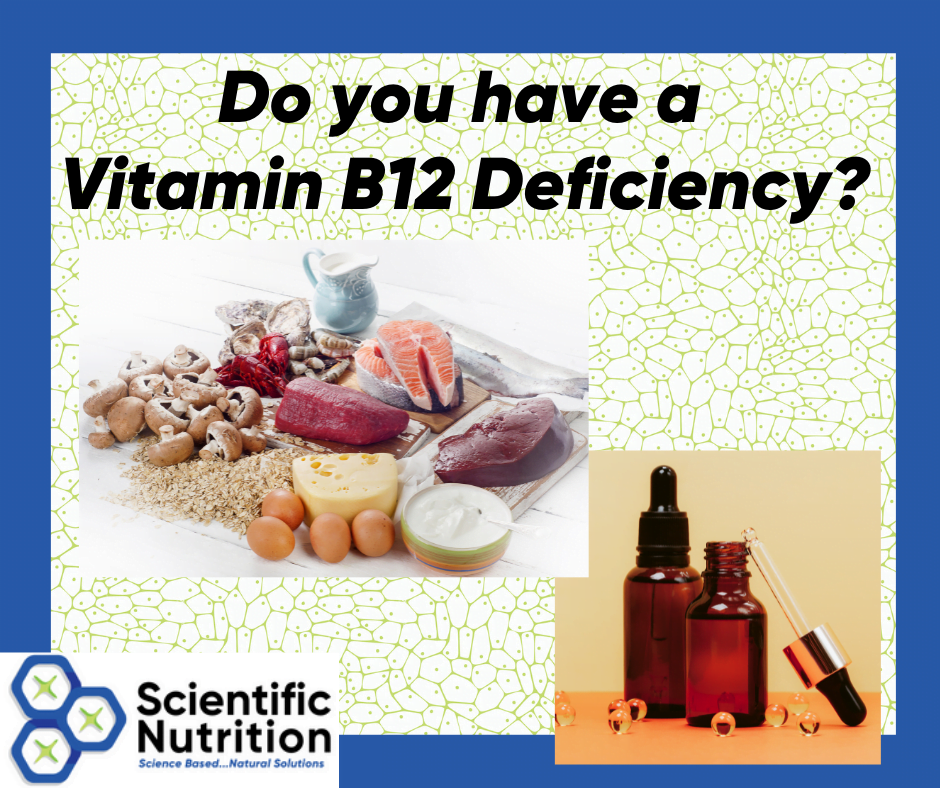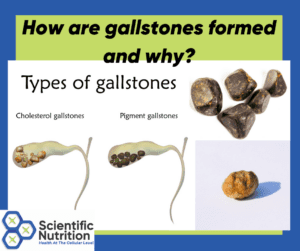Do you have signs of a Vitamin B12 deficiency?
A B12 deficiency is most often seen after the age of 50 but can occur under many conditions. It is best to correct it before it becomes a problem with proper supplementation to put it back into mineral balance. Let’s look into why we need it, related symptoms, and the best form to use.
It is estimated 20% of adults over 60 years of age have a Vitamin B12 deficiency as well as 6% under 60 according to the National Institute of Health.
Vitamin B12 Deficiency Symptoms:
- Feeling dizzy or lightheaded when getting up quickly from a sitting position, after vigorous exercise, or walking through a building because of low oxygenation.
. - Fatigue that no amount of sleep helps. It is exhaustion. There are two types of anemia due to a B12 deficiency, Addison’s Anemia and Pernicious Anemia, both linked to decreased red cell production. Pernicious anemia inhibits the absorption of B12 due to a lack of intrinsic factor protein. This condition increases the risk of intestinal cancers. The lack of red blood cells also causes an imbalance of bilirubin leaving the person pale or yellowish. If left untreated it can result in vitiligo, a skin condition turning the skin color white or absent of color.
. - Numbness, pins, and needles can be due to nerve damage from oxygen-starved tissue. Electrical shocks as well as neurological issues such as tingly hands and feet or balance issues. These can result in serious problems if left untreated.
. - Daily weakness because the muscles are lacking the much-needed oxygenation. Shortness of breath and lack of past strength are outward symptoms of this deprivation to vital organs and systems. Normal items that may be typically easy to lift such as a gallon of water may feel incredibly heavy.
. - A smooth tongue. Sounds unusual right? It may not be something normally looked at but 50% of people with B12 deficiency will lose the papillae or little bumps containing taste buds. They experience a loss of taste and even weight loss.
.Wait, there’s more!!
.
- A swollen tongue is a condition known as glossitis. It may change the color or shape creating redness and pain. One may experience burning, itching, mouth ulcers, and a sensation of pins and needles in the mouth.
. - Darker fingernails appearing brownish gray and prematurely turning head hair grey or hair loss can result when a B12 deficiency is present.
. - Heart palpitations along with pernicious anemia occur when your heart has to beat faster as the low amount of oxygenated red cells pushes it to pump harder to get the required amount of oxygen. Shortness of breath will often accompany this symptom as well.
. - Forgetfulness that’s not an occasional occurrence but happens often. A low B12 has been proven to be connected to dementia. The brain has a smaller volume as it shrinks affecting cognitive abilities. It causes sufferers to forget simple things such as day of the week, placing items in inappropriate places, or forgetting details.
. - Anxiety to full-blown depression is common as B12 helps to control the neurotransmitters and hormones that keep the brain functioning. The two main ones are Dopamine, which is your feel-good hormone, and Serotonin which regulates memory, social behavior, appetite, sexual desires, digestion, and of course mood.
. - Vision changes such as blurred vision, light sensitivity, shadows, tracers, double vision, or spotty eyesight may indicate damaged blood vessels leaving blockages in the eye.
What does Vitamin B12 do?
- B-12 plays a role in nerve function and is critical in making strong nails, healthy skin, and hair.
. - It’s required to create red blood cells that provide oxygen, your cellular functions, and DNA synthesis.
. - Having enough B12 reduces homocysteine, an amino acid that when high, can be linked to heart disease, Alzheimer’s, and stroke.
. - This vitamin is essential in a nursing baby’s development so it is essential that mom has enough.
Why am I not absorbing Vitamin B12?
- Pernicious anemia causes difficult absorption which develops 3-5 years after a deficiency begins.[i]
. - Atrophic gastritis is a thinning of the stomach lining resulting in low intrinsic factor protein needed for absorption.
. - Autoimmune diseases such as Graves Disease, HIV, Lupus, Celiac Disease, or Crohn’s Disease.[ii]
. - Vegetarianism lacks B12 in the diet due to eliminating animal protein resulting in much-needed supplementation.
. - Medications such as birth control, hormone replacement therapies, (PPI) Proton Pump Inhibitors for heartburn, some anti-seizure medications, and Metformin for diabetes will deplete B12.
. - Alcohol depletes hydrochloric acid-reducing B12 absorption which binds with the vitamin to transform it into the free form needed. Gut bacteria need B12 and even use it to transfer genes to each other in the same process that they use to stay alive when antibiotics are on board.[iii]
. - Weight loss surgery or partial stomach removal as it also disrupts gut acids.
. - Parasitic infections such as tapeworms from contaminated fish that is more common than people think.
. - Genetic mutations such as MTHFR and others affect absorption.
What is the best form of Vitamin B12?
Getting B12 sublingually or under the tongue is the most bio-available form. The liquid is more absorbable in comparison to pills and gummies. Sprays can be sticky so B12 drops are preferable.
Methylcobalamin is the form to look for as it is a bio-identical form of natural B12 and biologically active to metabolize quicker. You do NOT want the form cyanocobalamin as it must be converted delaying its efficacy.
Hair tissue mineral analysis and Vitamin B12 levels?
Did you know we can see into your cellular storage through your level of Cobalt, one of the components that help your body absorb and use Vitamin B12?
A Hair Analysis can show you if your Cobalt is low indicating low B12 levels.
Cobalt is an alkaline-forming trace element needed to synthesize B12. It is also essential in producing compounds that are antibacterial and antiviral in your immune system so trace amounts are needed.
When we look closely at your oxidation rate we can see if you metabolize fast or slow. This is important as taking B12 with a slow thyroid can have a negative impact on thyroid support as well as throwing the Sodium to Potassium ratio out of balance.
What helps to maintain healthy levels of B12?
Synergistic vitamins such as folic acid, Vitamin C, molybdenum, copper, zinc, and iodine are needed to maintain balance. Using a chelated form and increasing dietary foods high in B12 is much more beneficial than taking a straight B12 supplement.
Knowing what your individual biochemistry needs are is key to the best quality of health possible. A blood test is a momentary measure or snapshot of where you are at but a hair analysis test can show you a movie about the last month’s balance within your body.
Are you ready to see where your level is at and so much more?
LET’S CHAT about your health goals!
Learn additional information about Vitamin B12 Toxicity.
[i] Webmd.com/diet/vitamin-b12-deficiency-symptoms-causes
[ii] Cedars-sinai.org/health-library/diseases-and-conditions/a/anemia-of-b12-deficiency.html
[iii] Sciencedaily.com/releases/2022/02/220201074525.htm
Copyright Scientific Nutrition, LLC 2022




